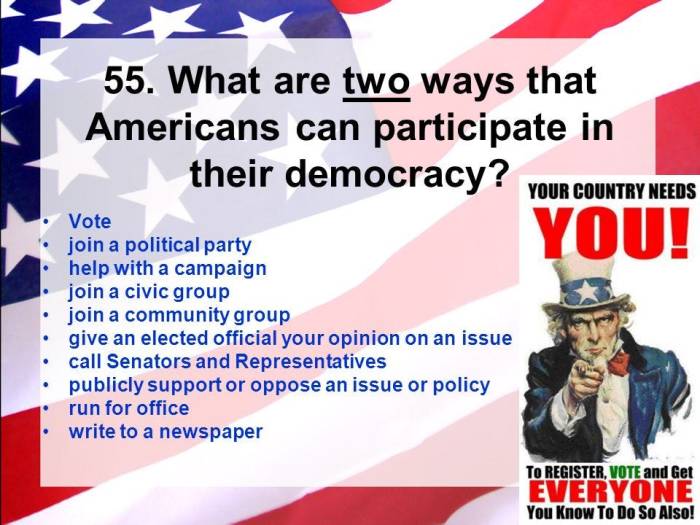United states government our democracy student edition – Embark on an enlightening journey with “United States Government: Our Democracy (Student Edition),” a comprehensive guide to the intricate workings of American governance. This captivating text unveils the fundamental principles, institutions, and challenges that shape the vibrant tapestry of our democratic republic.
As we delve into the intricacies of the United States government, we will explore the delicate balance of power among the legislative, executive, and judicial branches. We will examine the bedrock of our nation, the Constitution, and its enduring legacy in safeguarding individual rights and shaping the course of American history.
Introduction
The United States government is the political system that governs the United States of America. It is a representative democracy, meaning that citizens elect representatives to make decisions on their behalf.
Democracy is a system of government in which all or most citizens have the power to impact their own governance, often through the election of representatives.
Understanding the role of government in a democracy is crucial for informed citizenship. Governments provide essential services, such as infrastructure, education, and healthcare, and they play a vital role in protecting citizens’ rights and freedoms.
Branches of Government
Legislative Branch
The legislative branch of the United States government is the United States Congress, which consists of the Senate and the House of Representatives. Congress has the power to make laws, declare war, and approve treaties.
Executive Branch
The executive branch of the United States government is headed by the President, who is also the commander-in-chief of the armed forces. The President is responsible for enforcing laws and carrying out the policies of the government.
Judicial Branch
The judicial branch of the United States government is headed by the Supreme Court. The Supreme Court has the power to interpret laws and determine whether they are constitutional.
The Constitution

The Constitution is the supreme law of the United States. It establishes the structure of the government and protects the rights of citizens.
Key Principles of the Constitution, United states government our democracy student edition
- Federalism: Power is divided between the federal government and the states.
- Separation of Powers: Power is divided among the three branches of government.
- Individual Rights: The Constitution protects the rights of individuals, such as freedom of speech, religion, and the right to bear arms.
The Electoral Process

Citizens elect representatives to the government through the electoral process. There are two main types of elections: primary elections and general elections.
In primary elections, voters choose the candidates who will represent their party in the general election. In general elections, voters choose the candidates who will hold office.
Challenges to the Electoral Process
- Voter Suppression: Efforts to prevent certain groups of people from voting.
- Gerrymandering: The redrawing of electoral districts to give one party an unfair advantage.
Citizen Participation
Citizens play a vital role in a democracy. They can participate in the political process by voting, running for office, and advocating for issues they care about.
There are many ways to participate in the political process. Some examples include:
- Attending town hall meetings
- Contacting elected officials
- Volunteering for campaigns
- Donating to political organizations
Challenges to Democracy

There are a number of challenges to democracy in the United States, including:
- Political Polarization: The increasing division between the two major political parties.
- Misinformation: The spread of false or misleading information, especially through social media.
- Voter Suppression: Efforts to prevent certain groups of people from voting.
Expert Answers: United States Government Our Democracy Student Edition
What are the three branches of the United States government?
The three branches of the United States government are the legislative branch (Congress), the executive branch (President), and the judicial branch (Supreme Court).
What is the significance of the Constitution?
The Constitution is the supreme law of the United States and establishes the framework for the government, including the powers and responsibilities of each branch.
How can citizens participate in the political process?
Citizens can participate in the political process through voting, running for office, advocating for issues, and engaging in civic activities.